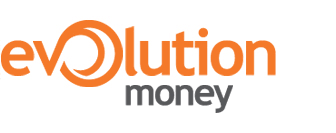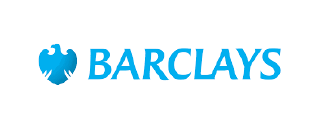Our Lenders
We work with Lending Expert to give you access to a panel of leading lenders well placed to meet your needs at the lowest rates.










An Inheritance Tax (IHT) Loan is a bridging loan that is designed for individuals, or executors if there is a Will, with estates where there is an IHT liability to pay, but there are no funds available. It is the ideal solution if you are wondering how to pay inheritance tax before probate is granted.
Here at Proper Finance, we have partnered with reputed probate experts Tower Street Finance to ensure you get the best possible inheritance tax loans available.
What is Inheritance Tax?
Inheritance Tax is a specific tax that is paid towards the estate of someone who has died. Generally, you are eligible for IHT if the value of the estate is above the £325,000 threshold, or ‘nil rate band’. If you are eligible for IHT in the UK, then you will owe 40% to HMRC on anything above the £325,000 threshold. There is no IHT to pay if the value of the estate is below this threshold, or if you leave everything over that threshold to a spouse, civil partner, charity, or community amateur sports club.`
As an example: If an estate is worth £500,000, then Inheritance Tax would be payable by an individual on the £175,000 over the Inheritance Tax threshold of £325,000. At a rate of 40%, this would equal £70,000. In the 2019/2020 tax year the average Inheritance Tax bill was over £220,000, an increase on previous years. These rates are representative of a single person’s Inheritance Tax allowance and there are different rules for married couples and those in civil partnerships.
Who Pays Inheritance Tax?
If there is a Will, the Executor is usually liable to settle the Inheritance Tax bill. However, if a Will hasn’t been left then the responsibility for the payment of Inheritance Tax will fall to the Administrator (Personal Representative) of the Estate. Once the Inheritance Tax has been settled, the Executor or Administrator can apply for a Grant of Probate and thereafter distribute the estate to beneficiaries.
Probate and Inheritance Tax
The Executor or administrator must obtain a Grant of Probate in order to dispose of the estate assets and this cannot be issued until the IHT has been paid to HMRC. Probate is the right to deal with the deceased person’s property, money, and possessions.
When Do You Pay Inheritance Tax?
Inheritance Tax must be paid before Probate can be granted and before assets are distributed. The bill must also be paid within six months of the person’s death. If this deadline passes, HMRC will start charging interest and potentially penalties on the unpaid Inheritance Tax. The longer it takes for an IHT bill to be paid, the more interest is added. Currently the interest rate is set at 3.75% for late payments and HMRC will refund the Estate if it has overpaid IHT once Probate has been granted.
Why Use an Inheritance Tax Loan?
If you are left with significant wealth (via property, cars, or other possessions), the combined amount will result in a significant inheritance bill.
As an inheritor, you have 6 months (from the end of the month when the individual leaving the inheritance died) to pay the inheritance money. This amount is usually repaid using money from the estate of the deceased person. However, you will only be granted probate (access to the estate’s assets) after you have settled the tax that is owed.This is an understandable structure, since you may otherwise use the assets to pay other bills or clear existing debts. This structure, however, creates “locked estates” which cannot move forward until the IHT has been settled. It is estimated that £2bn a year is tied up in ‘locked estates’
Securing a loan with Proper Finance, via Tower Street Finance, can be used to ensure that your estate does not become locked by enabling you to settle the IHT bill quickly and easily. This ensures that you avoid any delay or penalty charges from the HMRC, and will give all parties breathing room to deal with the property as everyone sees fit, without being concerned about the pressures of time.

How Does an Inheritance Tax Loan Work?
When you apply for an IHT loan with Proper Finance, and its partners Tower Street Finance, we will pay HMRC the inheritance tax that is owed. Once the IHT has been paid, an application can be made for Grant of Probate.
Following the Probate process, the assets of the estate will be made accessible for disposal, allowing the IHT loan to be paid back from these funds. As it will be the estate that will refund the money for the IHT bridging loan, there will be no monthly repayments and therefore no financial risk to you.
Who is an Inheritance Tax Loan Aimed at?
An IHT loan can provide financial relief to executors (or personal representatives where there is no Will) who are facing a significant inheritance tax bill. Taxing out an executors’ loan to pay IHT will not only benefit you as the executor/ personal representative, but it will also allow any beneficiaries of the estate to receive their inheritance in a timely manner.
An IHT loan is available to anyone who needs to pay UK inheritance tax. Unlike a typical bank loan, there are no credit checks and no monthly repayments, so your income and affordability do not need to be assessed. This means that you are able to apply for a bridging loan to pay inheritance tax, regardless of whether you own a property or have a good credit rating.
What is the Eligibility Criteria For An Inheritance Tax Loan?
The eligibility criteria for an inheritance tax loan in the UK varies between lenders. Generally, you will likely need to meet the following requirements:
- Be a UK Resident. You must be a UK resident with a UK bank account
- Be over 18. You have to be 18 or over to apply for an inheritance advance
- Be a beneficiary. You must be named as a beneficiary in the will of the deceased. The deceased’s estate must also be going through the probate process.
- Be creditworthy. In some cases, you will be required to pass a credit check and meet the creditworthiness criteria of the lender.
- Provide documentation. You must provide documentation that proves both your identity as well as your entitlement to the inheritance. This can be in the form of a will or grant of probate.
- Agree to the terms of the loan. Finally, you will need to agree to the loan terms of the lender. These terms may include interest rate and fees. The loan will then be repaid from the proceeds of the inheritance after the completion of the probate process.
Can I Apply for an Inheritance Tax Loan Even With Bad Credit ?
Yes. The IHT loan that you apply for is secured against the money that you are due to receive from the estate. Your credit rating is not related to your ability to receive some of your inheritance early. The only thing that Tower Street Finance checks for when applying is an undischarged bankruptcy.
This also goes for employment information. Your employment information is not relevant since the loan decision will be based entirely on the assessment of the Estate.
Frequently Asked Questions about Inheritance Tax Loans
As the executor I am liable for paying the IHT – do I have any liability with an IHT Loan?
No – an IHT Loan becomes a Testamentary Expense, which means that it becomes a liability of the estate, not a personal liability for you. There are no monthly repayments, no requirement to do a credit check on you or take a charge over any property.
Do I have to pay the IHT to HMRC?
No – we will settle the IHT liability with HMRC directly.
There is more than one executor – do I need permission from all of them to get an IHT Loan?
No – any one executor (or Personal Representative) is able to take out an IHT Loan.
Do I need the permission of the beneficiaries to get an IHT Loan?
No – payment of the IHT is the responsibility of the executor (or Personal Representative); however, the beneficiaries cannot get any of their inheritance until the IHT is paid.
I am the executor but not a beneficiary – can I still take out an IHT Loan?
Yes – as the Loan is repaid by the estate, it does not matter who the beneficiaries are.